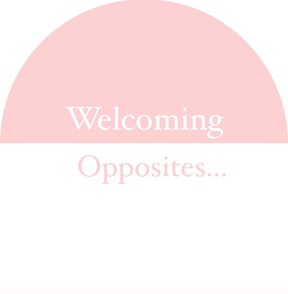This morning when I walked to the end of our hallway I could see the sun just coming up. I saw out of the window at the top of the stairs that the lake was purple, tinted by a fuchsia-pink sky. I hurried down stairs to get to the living room window and see it more fully, but by the time I got there, the pink had disappeared, like a secret shared and then quietly put away.
My morning poem today was Varanasi by Mary Oliver. Mary Oliver is one of my favorite poets. Somehow she always leaves the door open for me to enter her images and feel a little bit of what she might have been feeling when she experienced the moment she wrote about.
In Varanasi, Oliver describes a woman bathing in the Ganges River in India. The description is simple, everyday, but Mary Oliver, in her way, brings the image into full view with layers of emotion. When I read Mary Oliver I don’t really understand how the poem is affecting me in the moment. It is only after I complete the poem that I am aware of the felt-sense in my body, a churning combination of excitement, melancholy and gratitude for being invited into the space Mary Oliver created.
The last line of Varanasi is “Pray God I remember this.” As I sat quietly this morning reading Oliver’s words, I thought about the pink sky that I’d see for just a blip this morning, how it had come and gone so fast that all I had was my memory of it. I wondered how long this memory would last.
I thought about why Mary Oliver felt the need to pray to God that she’d remember what she witnessed; why she had to take that extra step in her mind to intentionally hold the majesty of what she witnessed.
I let my mind take me through my own memories, allowing myself to settle on the ones that showed up first, and strongest. I thought about the moment I saw my daughter after she was born, how it felt to meet her outside of my body for the very first time, how my heart swelled and then almost exploded; how that moment of meeting her was the only moment in time in all the history of the world.
I thought about the time flying home from New Orleans with my partner, tired and sweaty from a long weekend, feeling so in love that nothing mattered — not my grubby clothes or clammy skin, not my middle seat or the fact that I’d get very little sleep before a long day of work the next day.
I thought about the time I laughed so hard that water came out of my nose. I was with new friends in India. We barely knew each other. A giggle sparked another and another until the four of us were swallowed up by breathless laughter, laughing like I don’t remember laughing since middle school.
Each of those memories I called to mind this morning brought me back to moments in my life where I felt truly present, completely embodied with the experience. Each of the memories has been locked into my psyche because with each experience, I felt utter clarity — in my body, my mind, my spirit — that I was only in that moment, nothing before and nothing after.
Maybe this is what “presence” is — being so completely in a moment that the moment stays, or at least it can be called back after many years. Maybe “presence” means having the consciousness, as Mary Oliver did, to note the profound, heart-moving moments in our lives.
I return to the last lines of Varanasi:
I can’t say much more, except that it all happened
in silence and peaceful simplicity, and something that felt
like the bliss of a certainty and a life lived
in accordance with that certainty.
I must remember this, I thought, as we fly back
to America.
Pray God I remember this.
I wonder, as I get older and my memory softens, what images and experiences will fade and which ones will stay. I wonder if Mary Oliver wrote that poem right after seeing the woman bathing in the Ganges or if it was days or months or years after.
As I sit here, just a few hours after seeing the pink sky, I can remember the pink sky, but more than the colors and textures, I remember the feeling of delight in my body, of excitement at seeing the pink sky and the purple lake.
I think about getting older and losing my memory, like my mother-in-law whose memory is quickly fading, how she can’t remember details like she used to. I wonder if, in the absence of the details, she remembers the feelings, the sense in her body. I hope so.
I know I have other memories, mental recordings sealed into my neural pathways; I know I’m creating more every day. I think about those three memories that are as clear as if they happened yesterday, how I have been able to keep them because I was wholly in them. It’s a reminder to myself, like Mary Oliver gave herself in Varanasi, to note those moments when they come, so they stay with me as I go.







